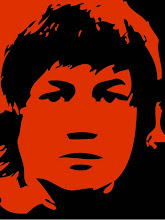The video-sharing site has set out its stall with its first ad push
YouTube is launching its first advertising campaign in 2010, looking to steal a march in the race to bring online content to TV.
The campaign carries the strapline 'YouTube's got TV' and will run on the sides of buses, Tube panels and as full-page print ads. It will precede the introduction in 2010 of next generation internet-enabled TV sets by several manufacturers, including additions to the Sony Bravia range, which will carry expanded web technology.
The YouTube ad campaign follows their recent deal with Channel 4, where popular C4 shows have been made available to stream on the site. Shows like Peep Show, Hollyoaks, The F-Word, The Inbetweeners and Jamie At Home have featured so far.
The campaign carries the strapline 'YouTube's got TV' and will run on the sides of buses, Tube panels and as full-page print ads. It will precede the introduction in 2010 of next generation internet-enabled TV sets by several manufacturers, including additions to the Sony Bravia range, which will carry expanded web technology.
The YouTube ad campaign follows their recent deal with Channel 4, where popular C4 shows have been made available to stream on the site. Shows like Peep Show, Hollyoaks, The F-Word, The Inbetweeners and Jamie At Home have featured so far.
'78% of people watch online TV to catch up with missed broadcast TV, according to Work Research/Thinkbox'
In 2008, more than 1.6bn views of TV shows took place online. According to Screen Digest, this figure is forecast to rise to 5bn a year by 2013. TV subscription services like Virgin Media and the Playstation 3 games console enable viewers to watch BBC's iPlayer through their television, furthering the transition towards online TV viewing.
Advertisers and broadcasters are wising up to this change in behaviour. The BBC have recently announced an Eastenders online spin-off show that will be exclusively available online. Also drinks company InBev have launched a 15-minute show exclusively on YouTube for their beer brand, Stella Artois.
I think that online TV broadcasting will really take off over the next few years. I think that websites like 4od and BBC iPlayer, that allow people to watch their favorite shows at their own convienience have obviously played a major part in online TV's rising popularity. I do believe however that people do (and will) still value certain family nights in. Family shows like The XFactor, I'm A Celebrity Get Me Out Of Here and Britains Got Talent will remain popular at traditional TV broadcasting times. More niche programmes and videos that you might watch on YouTube will prove popular, with 'middle of the road' shows perhaps dying out as people will have so much choice available to watch they watch.
Rhys McLachlan, head of broadcast implementation futures at MediaCom, says that although online TV is the future of broadcasting, the transition will take time.
'3.6m Virgin Media subscribers can access the BBC's iPlayer via their TV sets'
Advertisers and broadcasters are wising up to this change in behaviour. The BBC have recently announced an Eastenders online spin-off show that will be exclusively available online. Also drinks company InBev have launched a 15-minute show exclusively on YouTube for their beer brand, Stella Artois.
I think that online TV broadcasting will really take off over the next few years. I think that websites like 4od and BBC iPlayer, that allow people to watch their favorite shows at their own convienience have obviously played a major part in online TV's rising popularity. I do believe however that people do (and will) still value certain family nights in. Family shows like The XFactor, I'm A Celebrity Get Me Out Of Here and Britains Got Talent will remain popular at traditional TV broadcasting times. More niche programmes and videos that you might watch on YouTube will prove popular, with 'middle of the road' shows perhaps dying out as people will have so much choice available to watch they watch.
Rhys McLachlan, head of broadcast implementation futures at MediaCom, says that although online TV is the future of broadcasting, the transition will take time.
"Most people watch the same six channels on TV and will flick if there is nothing on those channels... putting TV content online won't stop this regular viewing, but it could collapse the long tail. People will not flick, but instead turn to on demand services".


0 comments:
Post a Comment